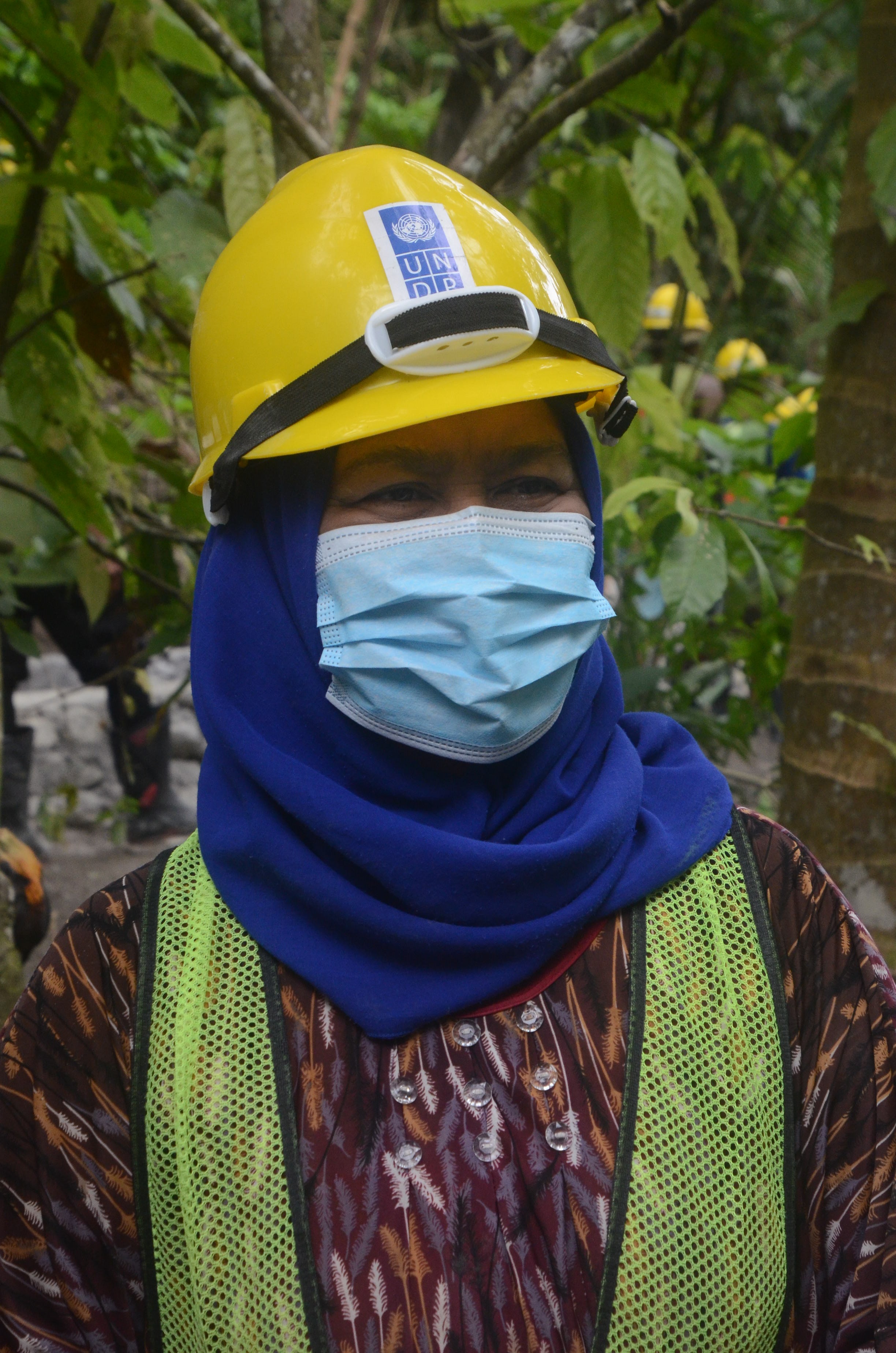When the earthquake destroyed a vital irrigation canal in Indonesia’s Jono village in 2018, Ibu Olfen’s world turned on its head. The farmer also lost the critical lifeline to her farmland which had supported her family for years.
Thanks to the ongoing reconstruction of the canal by UNDP’s Programme for Earthquake and Tsunami Reconstruction Assistance (PETRA), however, the coconut farmer has secured a temporary job and earned a living to support herself and three young children
When the PETRA project began working in the region with local partner Imunitas, and reached out to the community offering job opportunities, Ibu Olfen said she jumped right in.
“I had been making good money as a farmer, but the damaged irrigation canal hindered the harvest, so there were some difficulties. When we were offered the opportunity to work, I decided to take the job so I could earn extra cash in addition to my income from my farming products. It was a good decision as I have been able to save money for myself and help my children too. One of them is still in school,” said Ibu Olfen who also heads the local Medium, Small and Micro Enterprises Cooperative.
“I enjoy the work. There are a few women I work with here and we feel well-respected. We have not experienced any problems in our work. Men and women have different responsibilities in the project and we work together as a team,” she said.
Imunitas, a Palu-based CSO is no stranger to UNDP’s PETRA project. The CSO had previously collaborated with UNDP on a Cash for Work (CfW) program, in which workers report their hours using a mobile app that is immediately linked to a bank account where their wages are deposited.
“Workers check in twice a day,” said Rahmat Hidayat, Project Coordinator at Imunitas, adding “This has helped to guarantee that they will be paid each month. The accounts are held in each worker’s name which has especially helped the women working here as they have autonomy over their income and can decide how to spend or save their earnings.”
In addition, local banks frequently organize workshops on financial planning to inform workers about savings and investment opportunities.
“Thanks to this project, I have a steady income, so I can plan for the future,” Ibu Olfen noted, adding that she plans to fully return to farming once the reconstruction project ends later this year.
“The new irrigation system will be stronger and better. It will help our community’s harvest,” she said. “I have some money saved up, so my future income from farming will just add to that. I hope that the future won’t be as difficult with this new facility.”
Working to rebuild this vital irrigation channel has given the 51-year old widow her a moral boost.
“Like many women in my community, I have had many struggles and obstacles, but I’m thankful for the opportunities that have come by which have helped me immensely,” she said. “Knowing that I made a major contribution to rebuilding my community after the earthquake destroyed so much, that gives me so much pride —and hope —for myself, my children and my community,” she beamed.
The PETRA project is funded by the Federal Republic of Germany through its development bank, KfW. The Project aims to rebuild critical infrastructure facilities in quake-hit Central Sulawesi province and the West Nusa Tenggara (NTB) province.
-
Written by Ranjit Jose
Edited by Tomi Soetjipto

 Locations
Locations

